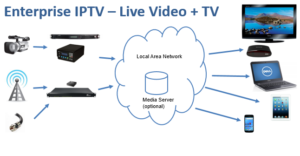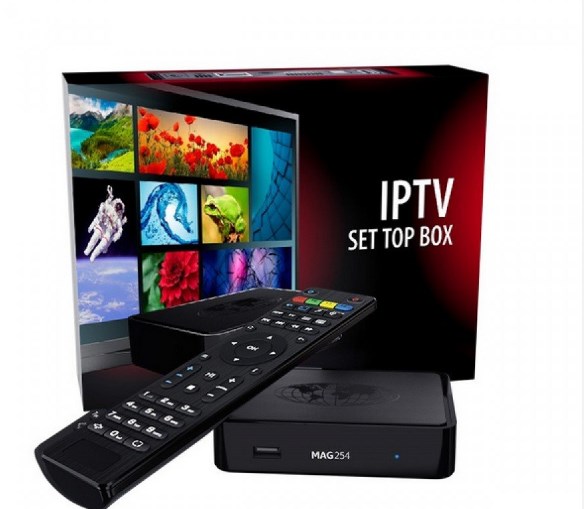How IPTV Functions: Your Complete Guide to Streaming TV Online
IPTV, or Net Procedure Television, stands for a considerable change in exactly how we consume tv content, relocating away from standard broadcasting methods to a more versatile, internet-based approach. By making use of a client-server model, IPTV allows users to access a substantial range of programming with digital packets transferred over broadband connections. Nonetheless, recognizing the ins and outs behind this innovation-- such as its parts, advantages, and different solution types-- can be critical for making informed selections in today's digital landscape. As we discover these aspects, the ramifications for your watching experience might become a lot more pronounced.
What Is IPTV?
In the realm of electronic media, IPTV, or Web Procedure Tv, represents a transformative technique to providing tv web content. Unlike typical broadcasting approaches, which depend on satellite, cable television, or terrestrial systems, IPTV uses internet protocol to stream content directly to devices such as tablet computers, tvs, and smartphones. This technology makes it possible for individuals to access a wide array of programming via high-speed web connections, offering flexibility and ease.
IPTV can be classified into 3 main service models: real-time television, video as needed (VOD), and time-shifted television. Real-time tv enables users to see programs in real-time, while VOD provides accessibility to a library of content that can be watched at the customer's convenience. Iptv. Time-shifted tv allows visitors to enjoy programs at their preferred time, even if they initially broadcast online
Moreover, IPTV frequently integrates interactive attributes, such as digital program guides and video clip recording abilities, boosting the viewing experience. As customers significantly demand individualized content and on-demand solutions, IPTV stands out as an engaging solution, reshaping the tv landscape and offering unmatched alternatives for audiences worldwide.
Just How IPTV Works
The seamless assimilation of technology and customer experience defines how IPTV runs. Net Protocol Tv (IPTV) delivers television programming and other multimedia material by means of net protocols, as opposed to typical terrestrial, satellite, or cable television styles. This procedure entails encoding video clip content into digital packets that are transferred over a broadband net link.
IPTV normally utilizes a client-server design where web content is stored on a server and sent to the individual's gadget-- such as a clever TV, computer, or smart phone-- upon demand. The web content distribution is facilitated through a set-top box or an application that deciphers the incoming information and offers it on the screen. Significantly, IPTV operates a online or on-demand basis, permitting individuals to access a wide array of networks and programs.
A critical aspect of IPTV is its dependence on a robust broadband connection, which guarantees smooth streaming and top quality video playback. Furthermore, IPTV systems commonly integrate sophisticated functions such as digital program overviews (EPGs), time-shifting, and video-on-demand (VOD), boosting the watching experience. On the whole, IPTV stands for a considerable development in exactly how customers take in television material, leveraging the power of the web for enhanced ease of access and flexibility.
Advantages of IPTV
While traditional television methods typically restrict visitor options and ease of access, IPTV provides numerous advantages that improve the general viewing experience. Among the main advantages is the considerable range of content available. Viewers can access a substantial library of networks, on-demand shows, and movies, customized to private preferences.
In addition, IPTV supports multiple gadgets, allowing customers to stream content on smart devices, tablets, clever TVs, and computers. This versatility makes sure that audiences can watch their preferred programs anytime and anywhere, as long as they have an internet link. Furthermore, IPTV commonly features interactive aspects, such as document, rewind, and pause capabilities, providing individuals with greater control over their checking out behaviors.
Cost-effectiveness is an additional remarkable benefit. Numerous IPTV solutions supply competitive prices contrasted to traditional cable television memberships, usually without covert costs or long-term agreements. This affordability makes it easier for customers to check out different channels and web content without considerable economic dedications.
Lastly, IPTV normally boasts superior photo high quality, consisting of high-definition and 4K choices, boosting the general watching experience. Jointly, these benefits make IPTV a compelling choice for contemporary audiences seeking flexibility, variety, and quality in their enjoyment choices.
Sorts Of IPTV Solutions
IPTV services can be categorized right into numerous unique kinds, each dealing with different audience needs and preferences. The primary classifications consist of online television, on-demand content, and time-shifted IPTV.
Real-time tv IPTV provides real-time streaming of program networks, enabling audiences to watch programs as they air. This solution carefully resembles standard cable television, providing accessibility to a variety of channels, consisting of news, sports, and home entertainment.
On-demand IPTV, on the other hand, click for info makes it possible for individuals to enjoy and pick material at their convenience. This consists of films, collection, and docudramas that can be streamed whenever the viewer picks, using flexibility and customization.
Time-shifted IPTV combines components of both on-demand and live solutions. It allows visitors to stop briefly, rewind, or document live broadcasts, offering them the capacity to control their watching experience. This service is specifically helpful for those with active schedules, as it suits audiences that may miss real-time broadcasts.

Establishing Up IPTV
Establishing IPTV involves numerous vital actions to ensure a seamless viewing experience. You require a secure net link, ideally a broadband service with a minimum speed of 10 Mbps for conventional meaning and at least 25 Mbps for high meaning streaming. This makes sure very little buffering and a smooth playback.
Following, choose an IPTV service provider. Study numerous options, comparing their network offerings, rates, and individual evaluations. Once you have actually chosen a carrier, you commonly obtain login credentials and a link to access the IPTV solution.
To begin streaming, you'll need a compatible tool - Iptv. Numerous IPTV services can be accessed via Smart TVs, streaming boxes like Roku or Amazon Fire television, computer systems, or mobile phones. Download the corresponding application or software application for your chosen system
After installation, visit utilizing your qualifications and set up any essential settings, such as adult controls or channel choices. Attach your device to your tv through HDMI, and you're ready to enjoy a vast range of networks and on-demand content. On a regular basis look for software application updates to enhance efficiency and safety and security, making certain an ideal IPTV experience.
Verdict

IPTV, or Web Procedure Television, stands for a substantial change in just how we take in tv content, moving away from standard broadcasting approaches to a more versatile, internet-based strategy.In the realm of digital media, IPTV, or Web Procedure Tv, stands for a transformative strategy to delivering television material.IPTV can be categorized right into 3 main service versions: live television, video on demand (VOD), and time-shifted television. Internet Protocol Television (IPTV) supplies tv shows and various other multimedia content via internet protocols, rather than traditional terrestrial, satellite, or cord styles. Generally, IPTV stands for a substantial advancement in just how viewers eat television material, leveraging the power of the net for improved accessibility and versatility.